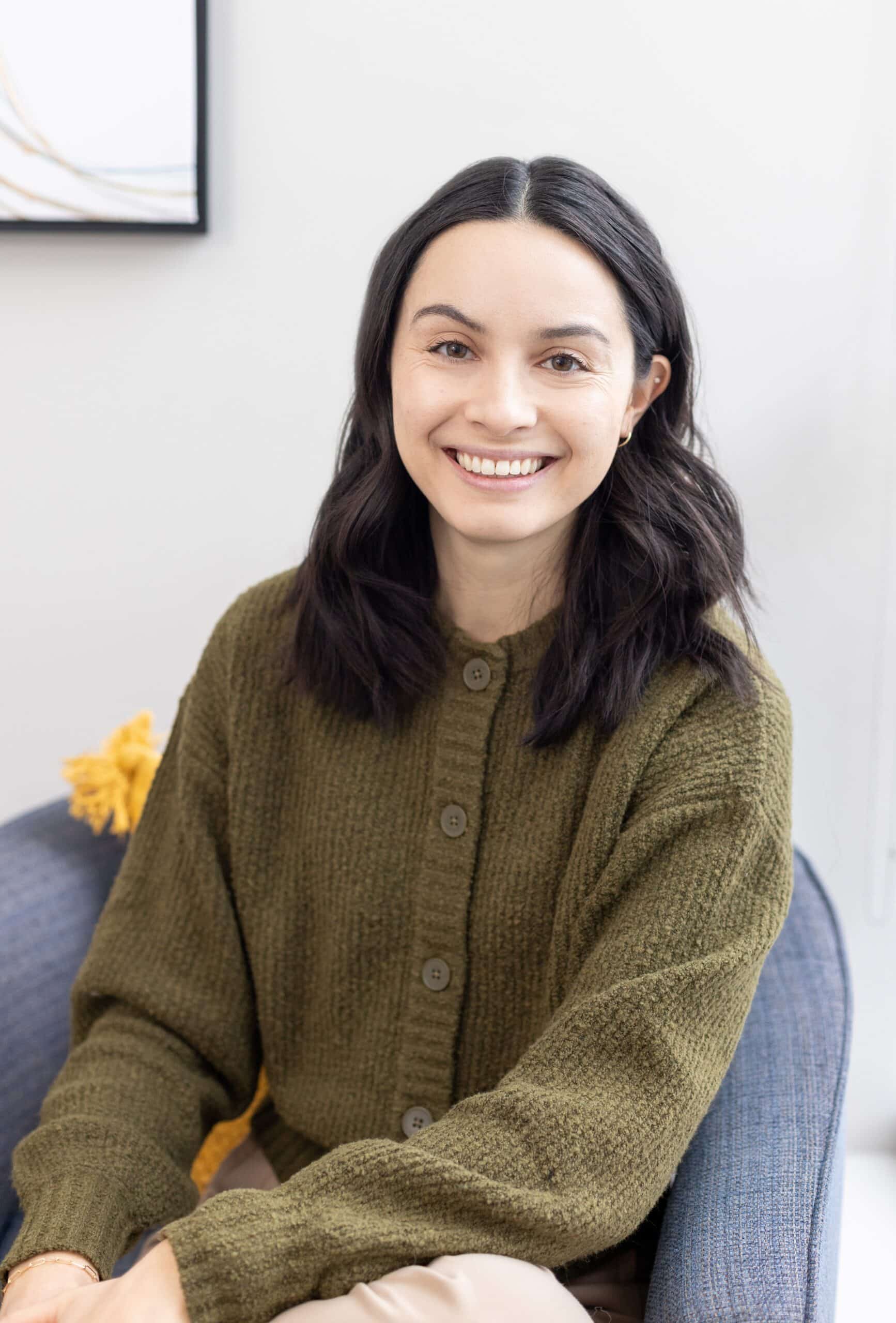Immediate Availability - Open 7 days a week - day, evening and weekend appointments
Immediate Availability - Open 7 days a week - day, evening and weekend appointments


Hi, I’m Rachelle! I specialize in working with teens (12+), adults, and couples. When you step into a session with me, I want you to feel at ease—this is a space where you can laugh, cry, and be fully yourself, without fear of judgment. I bring an open-hearted, engaging energy and a deep curiosity about your unique journey. My approach blends creativity, somatic awareness, and emotional insight to help you feel truly seen and supported. If you’re looking for a compassionate, creative, and methodical therapist, I’d love to connect!
In our work together, I use an approach called Emotionally Focused Individual Therapy (EFIT). It’s all about helping you make sense of the challenges you’ve been facing and the ways you’ve learned to cope, your “best attempts” to get through hard things.
Over time, we gently explore the emotional parts of you that might feel locked away, avoided, or pushed aside. Together, we’ll work at a pace that feels right for you, building a stronger sense of connection to yourself and the people around you. The goal is to help you feel more grounded, whole, and emotionally supported as you move forward.
I have also studied several other modalities, and when needed, I pull tools from this learning as well.
For example:
With Acceptance Commitment Therapy, we focus on what matters most to you, which is particularly helpful for issues with anxiety, depression, and burnout. By reconnecting with your core values, we can explore unworkable actions that have become habitual but are no longer leading to fulfilling long term consequences.
Sensorimotor Psychotherapy offers a body-centered approach that’s beneficial for trauma, PTSD, or overwhelming emotions. Unresolved trauma can manifest physically, and gentle somatic techniques allow us to release these patterns, fostering grounding and resilience. This method is useful if you have a history of trauma or if traditional cognitive therapies haven’t worked for you.
Narrative Therapy helps unlearn societal “shoulds” that shape your self-view. By examining how outside pressures influence your beliefs, we can address challenges like low self-esteem and identity struggles
Often, clients come in looking for a structured plan—like what they might receive from a visit to the doctor, where there's a clear treatment path and an expected timeline for improvement. They might ask for specific coping strategies or clarity on how long therapy will take, seeking that same level of predictability.
Although answering questions about the process is important, therapy is a different process than a medical visit. It’s a deeply human process that involves working with your heart and soul, not just addressing a physical issue. This can be hard to navigate because sometimes, people have an idea of what they think they want, but that doesn’t always align with their actual needs in the therapeutic setting.
While skill development and integration of tools are important, therapy often requires us to also explore our complex emotions and experiences. I strive to help clients understand that this process is about discovering what you truly need from me, allowing for flexibility and openness as we work together to address the deeper issues at play.
For many couples, by the time you decide to start therapy, you may have been struggling in silence for quite some time. Opening up and sharing your thoughts and feelings with me might feel uncomfortable at first, and building trust can take time. My goal is to create a safe and supportive space where both of you feel heard and understood. I’ll guide you through conversations and exercises designed to help you reconnect, understand each other more deeply, and rebuild emotional closeness.
Changing patterns that have been a part of your relationship for a long time can also feel overwhelming. It takes effort and a willingness to try new ways of communicating and relating to each other. I can help by identifying common relationship pitfalls, such as criticism, defensiveness, or avoidance, and showing you healthier ways to express your needs, manage conflict, and support each other.
Therapy is a process, and meaningful growth takes time, patience, and commitment from both partners. I’ll work with you to set clear goals, celebrate small successes along the way, and encourage you to approach each other with compassion and curiosity. Together, we’ll take manageable steps toward building the kind of relationship you both want and deserve.
When I work with couples, I draw from both the Gottman Method and Emotionally Focused Therapy, two evidence-based approaches that really help make sense of what’s happening in relationships and how to shift things. My goal is to help you move through stuck places by creating space for emotional experiences that can actually transform how you connect with each other.
What really defines my approach is how much I lean into empathy and compassion. Even when things feel messy or tense, I hold onto the belief that both of you are still longing to feel seen, accepted, and loved. I try to help each of you better understand one another’s needs and inner worlds so that you can start to rebuild trust, grow in emotional attunement, and remember what it’s like to truly admire each other.
Before I became a psychologist, I worked directly in community settings with youth, which gave me valuable insights into the day-to-day challenges they face. I understand how complex life can be at this stage—balancing the demands of school, family expectations, and social pressures while trying to figure out their identities can be overwhelming.
I witnessed firsthand how social media, peer relationships, and academic stress can weigh heavily on young people. It can be a confusing time, and many teens crave a positive, supportive presence in their lives, someone other than their parents who believes in their potential to change and grow.
Often, teens may feel more comfortable opening up to a therapist who is fully in their corner, providing unwavering support and guidance. I strive to create a safe space where they can express themselves freely and explore their feelings. Through our conversations, we can integrate practical skills to help them navigate their challenges and enhance their coping strategies.
It really depends on what you’re coming in for, but generally, most people start to notice some shifts around 6 to 8 sessions in. That’s often when trust starts to build, and we can begin to explore things a little more deeply. Real change tends to happen as you become more aware of what's keeping you stuck and begin to gently face the emotions that might have been pushed aside for a while.
If you're working through something more layered like trauma or long-standing family patterns, therapy might take a bit longer. But that’s totally okay. We go at your pace, and I’ll be with you every step of the way. Our work together is always shaped around what feels most supportive for you, so you feel safe, empowered, and never rushed
Becoming a therapist was a deeply personal path for me, shaped by my own experiences. I faced a lot of pressure, both internally and externally. I wanted so badly to do the “right” thing, and over time, this expectation became really heavy. I started to lose my connection to who I truly was.
Eventually, I saw how limiting these rigid patterns were and how freeing it could be to let go of them. This sparked me to go on my own personal healing journey, and through this I became inspired to give back from the healing I received myself. My hope is to help others who might be caught in similar struggles, especially people navigating pressures and expectations. I aim to offer you a space where you feel safe enough to explore who you truly are, away from the weightiness of life.
"*" indicates required fields